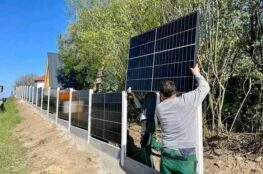South African households will have to review their budgets again after the South African Reserve Bank (SARB) announced the 10th consecutive increase in the repo rate. This occurs as economic conditions become increasingly precarious and inflation rates rise. On Thursday, Governor Lesetja Kganyago announced a hike in interest rates for both overnight loans (repo) and longer-term loans (prime lending) to 8.25% and 11.75 respectively. These alterations were implemented instantly.
Repurchase Agreement Activity (Repo Rate) Keeps Rising
South Africans have had to deal with continuously increasing repo rates since the beginning of 2022. Starting at a reasonable 3.75% in January 2022, the rate has more than doubled in just over a year and a half of hikes.
The Central Bank’s Inflation Viewpoint
In his statement, Governor Kganyago discussed the increased threats to South Africa’s financial stability and the persistent inflation that has plagued the country’s economy. He said the current economic situation in South Africa remains adverse even though the prospect for global development looks to have improved somewhat.
A statement given by the Governor reads as follows: “The rate of economic growth has been erratic for some time, and the prospects for growth remain uncertain.” Improvements in logistics and a sustained decrease in load-shedding, or an increase in energy supply from alternate sources, would both significantly boost growth. The Governor gave specific examples of the problems the country’s economy is facing right now, including:
The value of the Rand has fallen significantly over the past year, and it has fallen even more dramatically in recent weeks. Increases in the price of fuel, power, and food have had a disproportionate impact on the growth of South Africa’s headline inflation rate. The fuel inflation rate is expected to decrease to -2.0% in 2023, while the electricity inflation rate is expected to be lower at 11.6% this year.
Under the Microscope, Inflation Reveals It’s Changing Face
The South African Reserve Bank’s Monetary Policy Committee (MPC), according to Frank Blackmore, the firm’s chief economist, is committed to reducing inflation to the target level of 4.5%. According to him, “This increase is in line with other areas around the world, after their recent meetings” (This increase is in line with other locations). The recent depreciation of the rand and the continuous high level of inflation recorded up to April this year may also contribute to the potential increase. Many anticipate that inflation will begin declining in May and continue its decline thereafter because big price increases in the prior year’s pattern did not emerge until that month.
Repercussions for Consumers in the Market
Food basket costs have gone up by 10.6 percent over the past year, as measured by the Household Affordability Index. The soaring inflation, fluctuating prices of gasoline, and the dangerous situation in which electricity supplier Eskom finds itself all point to a problem with the cost of life in South Africa. With daily load shedding already hurting the economy, Eskom recently issued a warning about the probable introduction of Stage 8 load shedding, which would deal an extra blow to the economy.
Economic Forecast
Currently, South Africa is staring down the barrel of a severe economic crisis. According to the comments of economists in a Bloomberg poll, it is unlikely that the economy will grow by more than 0.3% quarter on quarter through 2023. The GDP growth rate is forecast to slow to 1.2% this year from 2.3% in 2022.
The tenth consecutive hike in the repo rate is a sobering reminder of the grave economic challenges that South Africa is facing at present. The South African Reserve Bank (SARB) is committed to reducing inflation, but in the meanwhile, everyday costs are rising for South African families. Long-term remedies that may boost economic development and ease inflationary pressures are desperately needed.
About The Author:
Lebohang Mokoena is an award-winning journalist with over a decade of experience in business reporting. She specializes in innovation and technology in South Africa and beyond. Lebohang holds a Master’s degree in Journalism and has previously worked for top-tier publications before joining Africa Nova.




